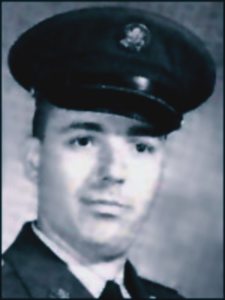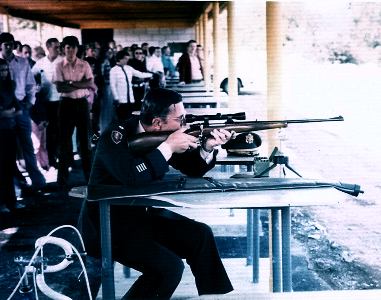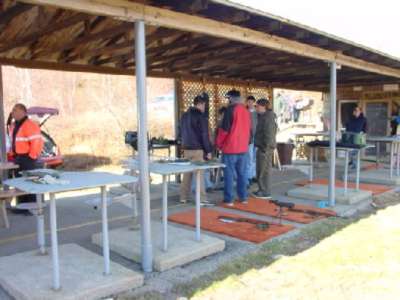Gloucester Honors Their War Dead
In an article published by Gloucester Times on May 31, 2010, the city in Massachusetts
remembered the lives of 11 of their own who gave the ultimate sacrifice in a war that remains vivid to those who lived through it.
Mark Nestor, a veteran helicopter pilot in the war was master of ceremonies at the Vietnam War Memorial
to the right of the front doors of the high school, provided a map with notes on where and when Gloucester's
11 lives were given, taken, and lost.
By name, they were Matthew Perry Amaral III,
David W. Bowman,
Paul D. Knowlton,
Stephen L. Lane,
Salvatore J. Piscitello,
Arthur E. Wright III,
Frank A. D'Amico,
Thomas J.Burke,
Frank T. Kreseskie,
Robert E. Moore, and
Jeffrey G. Tyne.
And their sacrifices were spotlighted at the city's Vietnam Memorial outside Gloucester
High School as part of the community's Memorial Day ceremonies.
Of the group, David W. Bowman, a helicopter pilot, was the oldest and first to die. When his
helicopter was shot down in Da Nang, on April 6, 1965, he was already 27. He was posthumously awarded the Distinguished
Service Cross for "extraordinary heroism under fire."
The last to die in Vietnam was Stephen L. Lane, another helicopter pilot. He was 25 when
shot down in Qua Ngai, a province south of Da Nang.
An Air Force veteran and Disable American Veterans chapter commander, Thomas Dagle Sr., who also
served in Vietnam began the solemn ceremony, noting that "those still among us and need our support" should also
be counted as heroes/casualties of the war.
"They were strong, they were vibrant, they loved and were loved," said Dagle. "And they are missed."
The special attention to Vietnam came amid the 35th anniversary of the end of the war.
Between the time Bowman's helicopter was shot down in 1965 and Lane was killed in a helicopter in 1970,
Vietnam exploded from back page status to daily reporting and a divided nation.
With the nearly 59,000 U.S. war dead in Vietnam and 303,000 wounded, those times also brought the
assassinations of President Kennedy, Senator Robert Kennedy, and civil rights leader Martin Luther King.
and countless men, women and children who were caught up in the struggles of war.
"Ladies and gentlemen of our audience," said Nestor, "I present you the 11 fallen veterans of Vietnam."
Their black and white high school yearbook pictures – sweetly innocent with the particular naivete
of the '60s, flattops and greased extravagance – were
pinned to pads on easels, evoking the rush of events that the heroes–to–be had missed by their fates, whether called to
fight by the draft, or having made conscious choices to enlist in the service of the country.
"We remember with compassion and honor," Nestor said.
Nestor and Army Lt. Col. Kathryn Van Auken, the guest speaker, both alluded to the different relationship
between the nation and its war or wars in their remarks.
"Even today," Van Auken said, "people forget that our nation continues to place our finest
men and women in harm's way. Even more amazing is that today's young men and women who enlist in the military
are all volunteers, knowing they are guaranteed to see combat in Iraq or Afghanistan."
A veteran of the Gulf War, Van Auken was the first woman combat soldier to be honored with
the opportunity to give the guest address on Memorial Day in Gloucester. Evoking the timelessness of the battle
between the granite shore and the seas and the fascination she experienced as a child sitting on Bass Rocks "letting
the waves and tide wash away my worries. ... Life by the sea makes you appreciate ... the ever–present ebb and
flow of life."
Speaking at the main ceremony at the World War II Memorial at Kent Circle, Van Auken noted
how fitting it was to have the memorial adjacent to the Fishermen's Memorial and the Fishermen's Wives Memorial.
Van Auken said the deaths of the veterans honored by Memorial Day
"are not just their own, they are ours, their loss is what we make of them, and we must give them meaning ... and tell
all generations that 'yes' it is worth it."
"For them," she continued, "we're obligated to live every day to deserve it, to take action to
preserve it, and never forget the price they paid for our freedoms. "You see, dying for freedom isn't
the worst that could happen," she said. "Being forgotten is...."







